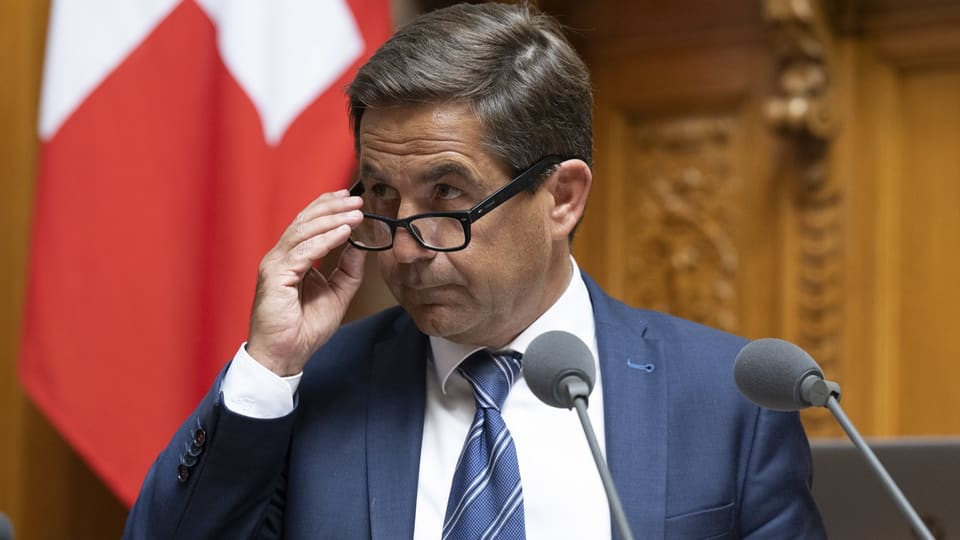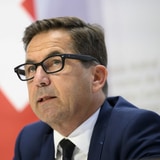He is one of the most influential political personalities in Switzerland. Now Chancellor Walter Thurnherr is stepping down after eight years in office. In the first interview after announcing his resignation in mid-August, he talks about his experiences, experiences and the demands of high office – and also about why he has had enough now.
SRF News: What motivated you to resign as Chancellor?
Walter Thurnherr: It’s important to leave as long as you’re up to the challenge. The past four years have been intense, probably the most challenging in a long time. The pandemic has caused many deaths. Never before have we spent so much money in such a short period of time. Never before has emergency law been used so frequently over such a long period of time. There have never been so many meetings. There have never been so many sessions. All in all, it was an exceptional legislative period, now I’ve had enough.
How would you describe the office of Federal Chancellor in Switzerland?
According to the law, the Federal Chancellor has an advisory role. I take part in the meetings of the Federal Council and have the opportunity to submit applications. Various laws and dossiers fall under the responsibility of the Federal Chancellery. Invitations to committees, such as the European Committee or the Digitalization Committee, are also part of my area of responsibility, as is advising the Federal Council on difficult dossiers. There is a wide range of tasks that my employees in the Federal Chancellery and I have to deal with.
Have the crises you mentioned changed the Chancellor’s job?
I would say yes. The job has become much more digital. We have a third more employees in the Federal Chancellery. There are significantly more coordination tasks than before. Overall, I would say: the job has become faster and more intensive.
Until now, Switzerland had watched the driftwood float down the river and noticed the water damming up from outside.
How has Switzerland changed during the years of crisis?
Switzerland has become aware of its dependence on foreign countries. Let us imagine the so-called “foreign policy affairs” as a kind of driftwood: Until now, Switzerland has watched the driftwood float down the river and noticed the damming of water from outside.

Legend:
Looking back: Federal Chancellor Walter Thurnherr at the spring session on March 13, 2023 in Bern.
Keystone/Peter Schneider
It was unimaginable that the water would rise to the point where you were standing. That has changed. The corona pandemic, the energy shortage, the medicine shortage and the war in Ukraine have shown us that we cannot just act as observers in foreign policy events. We are part of the whole.
I would also say that security is more important than it was four years ago. We are aware of how fragile everything is and how quickly we find ourselves in a state of emergency.
What are you planning after your resignation?
What I can say: I’m too old for a sports career (laughs). My plans are not more concrete at the moment. I have several offers on the table, but I haven’t decided yet. Maybe I’ll write a book. As a physicist, I am interested in the interface between science and administration. The integration of science into political decision-making is exciting and actually worth a book.
The interview was conducted by David Karasek.
